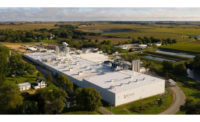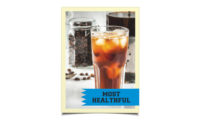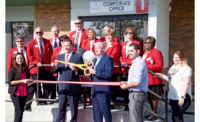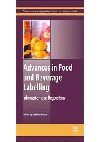Lotta latte
Berner Food and Beverage slakes the thirst for RTD beverages
The Illinois dairy processor tripled its facility to 290,000 square feet. It uses the retort process to manufacture beverages and cheeses.

Berner Food and Beverage LLC’s newly expanded manufacturing facility in northwest Illinois allows the private label and contract manufacturing supplier to offer additional beverage manufacturing capabilities and expand the footprint of its retorted beverage lines. The 290,000-square-foot facility is in Dakota, Ill.
Berner is a processor of shelf-stable beverages, aerosol cheeses and dips. Berner also makes control brands (Dakota for beverages and dips, and Party Cheese for aerosol cheese) that retailers can stock on their shelves.
The company is a contract manufacturer and a processor of private label foods. The company has sales representatives for each segment.
In a statement, CEO Kurt Seagrist said, “Our new state-of-the-art facility is SQF Level III certified and offers processing capabilities to deliver a larger variety of RTD beverages. With triple the space and a turnkey beverage program in place, we are ready to begin work on the industry’s next successful RTD beverage.”
Earlier this month, Dairy Foods spoke with two Berner executives for an article to appear in the June issue. Todd Mullane, the VP for the private label business, said that strong business conditions necessitated the company’s plant expansion (which tripled the size). In addition to the physical plant expansion, “we’re broadening our bandwidth and skillsets,” said Alan Davis, the SVP for contract manufacturing.
Berner uses the retort process to manufacture beverages and cheeses. It fills 9.5-ounce and 13.7-ounce glass bottles and 6-ounce, 8-ounce, 11-ounce and 15-ounce metal cans for beverages, while dips are housed in 15-ounce, 15.5-ounce, 16-ounce, and 23-ounce jars and aerosol products in 8-ounce cans. Because of the retort process (essentially a giant water bath heated up to exceed the boiling point), latte beverages and dips can have a higher dairy content than similar drinks filled aseptically in PET bottles, Mullane said. Beverages and dips are shelf-stable at ambient temperatures for up to a year; the aerosol cheeses and hot-fill cheeses in jars are stable for nine months.
Mullane called beverages a “huge” opportunity for the company, thanks to Starbucks which created the market for dairy-based coffee beverages. Private label clients are following the leader by developing their own lattes. Mullane described what he called the “natural progression” in the beverage segment: first private label customers create lattes, then coffee/energy beverage and eventually cold-brew coffees. He added that dairy-based tea beverages are “trending” with customers.
Looking for a reprint of this article?
From high-res PDFs to custom plaques, order your copy today!








